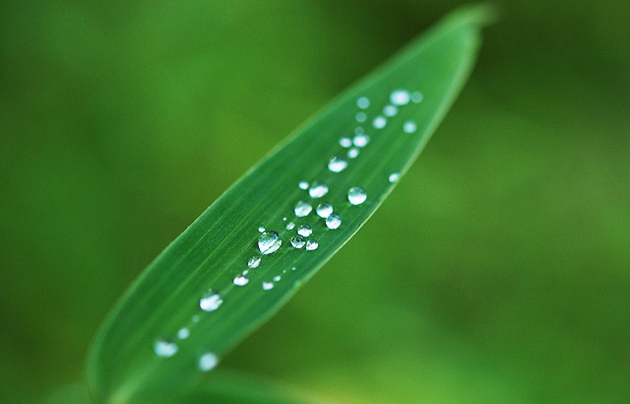Laudato Si’ – A Rich and Inviting Encyclical from a Green and Social Pope
The encyclical strongly relates these ecological problems to social issues such as injustice and income inequality: it asserts that where the fabric of society breaks down, the environment suffers as well.
19 AUGUST 2015 · 09:59 CET

Pope Francis has captured the hearts of many millions of people around the world, particularly by championing the rights of the poor and the oppressed. The latest proof of the Pope’s attention to social concerns is his encyclical Laudato Si’, in which he addresses the ecological degradation that human beings continue to cause to the planet.[1]
Laudato Si’ is a phrase taken from the famous canticle of the very Saint Francis after which the Pope named himself. The phrase means ‘praise be to You (my Lord)’. Interestingly, the praise that is alluded to is not that which humans bring to God, but that which is offered ‘through our Sister, Mother Earth’.
And it is indeed ‘Mother Earth’ who has central stage in this encyclical. It starts off with offering a thorough and comprehensive overview of the ecological crisis, mentioning, among other problems, pollution, the loss of biodiversity, and human caused climate change.
The encyclical strongly relates these ecological problems to social issues such as injustice and income inequality: it asserts that where the fabric of society breaks down, the environment suffers as well. This relationship between social and ecological ethics has been confirmed by contemporary research, and alluding to it allows the Pope to connect his longstanding social concern with ecological concern, strengthening both in the process.
The encyclical lists many motives for ecological action. It asserts, for example how closely we as human beings are connected with the earth through our own bodies: we are very much part of the world that is now being destroyed. The encyclical also makes reference to the future, pointing out the right of young people to a sustainable world. It interacts with the Scriptures as well, identifying biblical motives to care for the earth. In bringing these and other motives together, the encyclical forms a rich resource for environmental ethics.
That doesn’t mean that the document is flawless, however. It calls, for example, for an ‘ecological conversion’: the Pope argues that human beings ought to commit to a far-reaching transfer of emotional capital into the natural world – to truly ‘love’ nature, and to live in accordance with it.
This is problematic, for while nature indeed has beauty, and lots of it, it is also inherently destructive, and violent (‘fallen’, to use biblical language), making it a dubious source for normative morality, and an equally dubious object of romantic love. And secondly: while such an ecological conversion (‘becoming one with nature’) is indeed experienced by some, it is not easily accomplished. It typically takes long periods of ‘immersion’ into nature – this takes time, which is a luxury only a limited number of people can actually afford.
Criticisms such as these do not, however, diminish the value of this encyclical: there is much that Christians (Catholics and non-Catholics alike) can learn from it. The way to such a broad appropriation is already prepared by the Pope himself, who writes in a strongly ecumenical tone: he encourages all Christians – and even people of other religions – to work together on the issue of ecology. And rightly so: after all, all human beings live in this one ‘house of nature’, and it takes all of us to properly maintain it.
Steven van den Heuvel (Ph.D.) is Postdoctoral Researcher at the Evangelical Theological Faculty, Leuven, Belgium and member of the Steering Committee for the Institute of Leadership and Ethics.
This blog is part of a blog series on Leadership & Social Ethics, published by the Institute of Leadership and Ethics. For more information, please visit their website.
[1] “Encyclical Letter Laudatio Si’ of the Holy Father Francis on Care for our Common Home” (Accessed August 17, 2015).
Published in: Evangelical Focus - Institute - Leadership and Ethics - Laudato Si’ – A Rich and Inviting Encyclical from a Green and Social Pope
